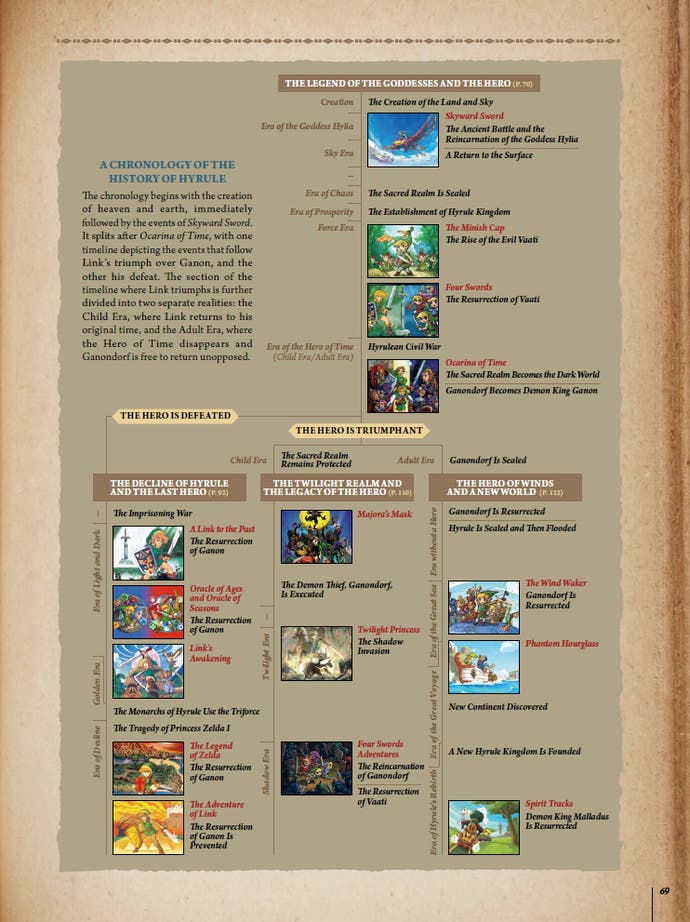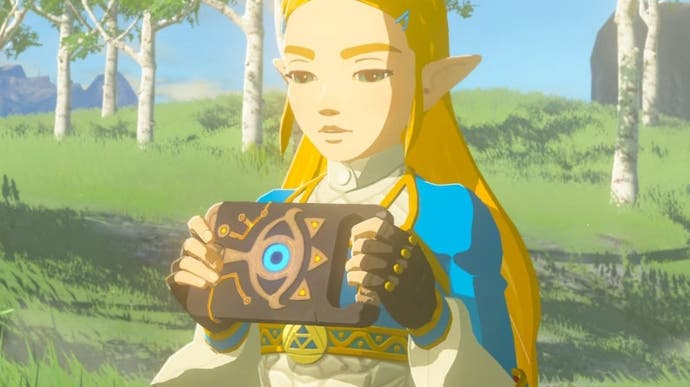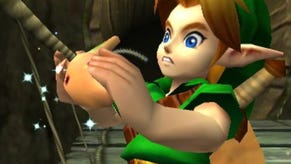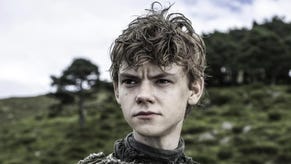Eiji Aonuma explains why Zelda: Breath of the Wild's timeline placing must remain secret
Head ganon.
Every Zelda game has its secrets, but nothing entertains fans of Nintendo's legendary adventure series more than discussing how each of its many chapters fit together.
Zelda is, of course, pretty much the same story every time. There's a hero, a princess, a baddie. There's a land to explore, bosses to defeat and useful tools just lying around mid-way through each dungeon to find. This repetition allows most Zelda games to stand alone, not needing you to know any backstory before jumping in. But fans like backstory, and they enjoy joining the dots from the minor references Nintendo sometimes does include to other games in the series.
The Legend of Zelda: Breath of the Wild is the only major game in the series not yet placed within the series' official chronology. A Zelda timeline was published a few years back in Nintendo's official Zelda companion book Hyrule Historia, which for the first time set down the series' complicated history on page. But this was before the release of Breath of the Wild, and so it is not included.
18 months after Breath of the Wild's release, fans are still debating its case. It references the now-dried Great Sea from Wind Waker, the placement of the Master Sword from the original NES Zelda games, and allows you to call in Wolf Link from Twilight Princess - games on each of the three separate branches of the timeline.
Does it sit on all timeline branches, a common destiny of all Zelda games released before it? Does it sit on a specific timeline branch - perhaps Wind Waker, with its explicit references and appearances of the Koroks, only created in that timeline split? Or does it sit on its own, in a timeline which has somehow emerged from a convergence of everything released to date?
18 months on, Zelda boss Eiji Aonuma still isn't telling. The godfather of the Zelda franchise is keeping schtum. But he has now, at least, explained exactly why.

"Video games, not just Zelda, can go much, much further! We got a lot of responses from adult players who said they felt the same way playing this game as they did when they used to be hooked on video games when they were younger," Aonuma says within new book Zelda: Breath of the Wild - Creating a Champion, as transcribed by Nintendo Insider. "We made this game with the intention of returning to our roots, so the response from players about feeling the same as they had when they were young is promising.
"In books like the recently released The Legend of Zelda Encyclopedia, we revealed where each Zelda game fell on a timeline and how their stories related, but we didn't do that for Breath of the Wild. There is a reason for that. With this game, we saw just how many players were playing in their own way and had those reactions I just mentioned.
"We realised that people were enjoying imagining the story that emerged from the fragmentary imagery we were providing. If we defined a restricted timeline, then there would be a definitive story, and it would eliminate the room for imagination, which wouldn't be as fun.
"We want players to be able to continue having fun imagining this world even after they are finished with the game, so, this time, we decided that we would avoid making clarifications. I hope that everyone can find their own answer, in their own way."
If it's a cop out, perhaps it's the best kind of cop out - one which strengthens the game and the discussion around it, rather than restricting fan enjoyment.
I have my own theory, that Breath of the Wild is set solely after the Wind Waker branch (it has to be, with the Koroks and Deku Tree and Great Sea references there! Other things can be explained away!) But I enjoy it being just my own theory, it being something to debate. Eiji Aonuma never says never about explaining things officially - perhaps one day we'll hear his theory too.








